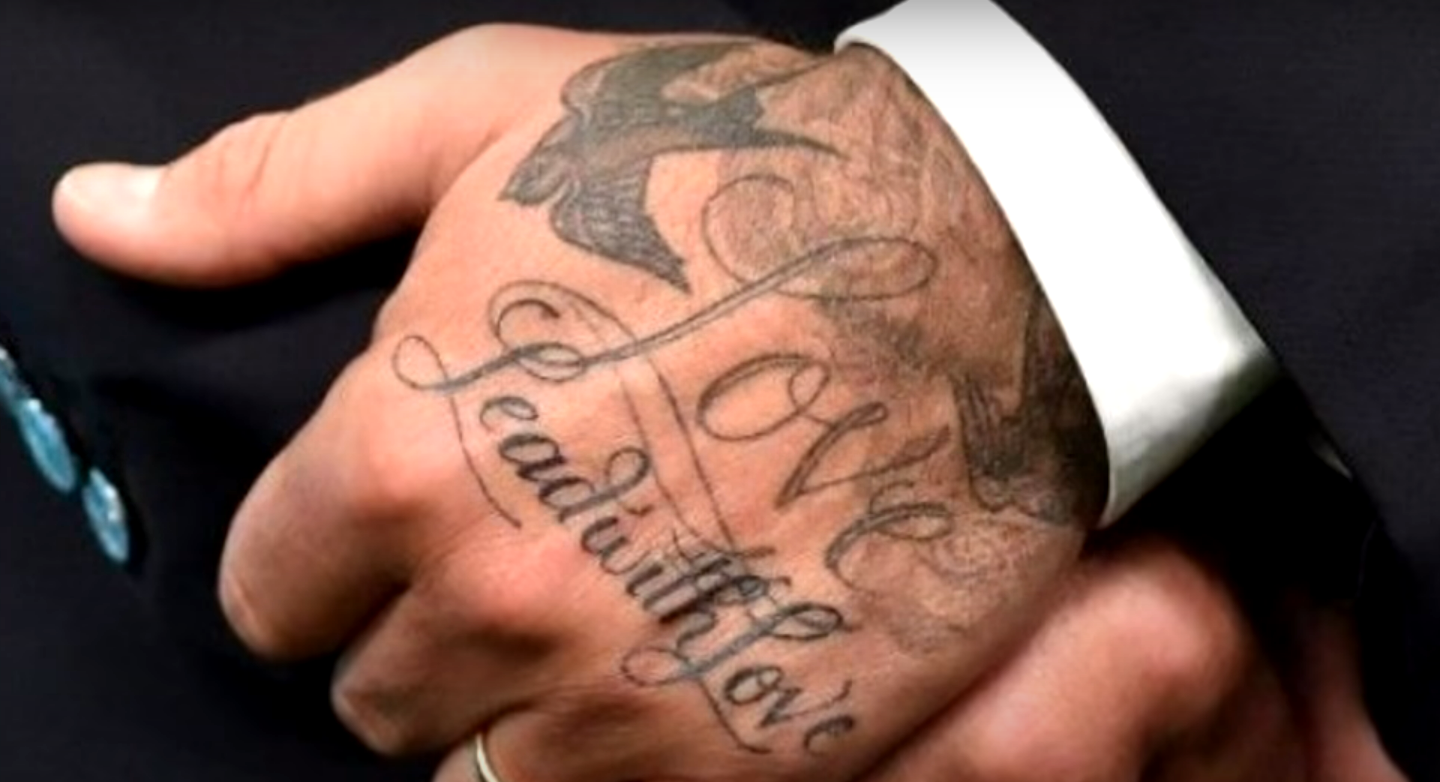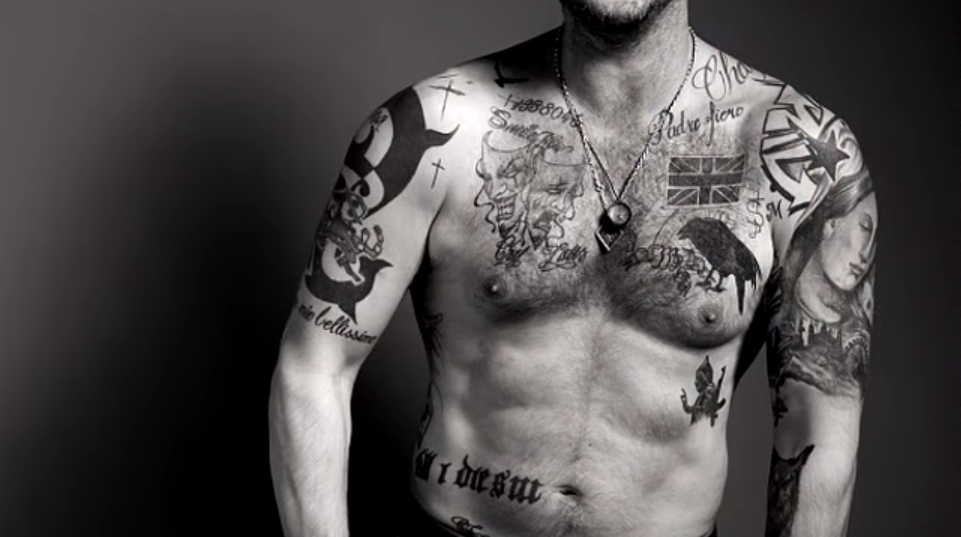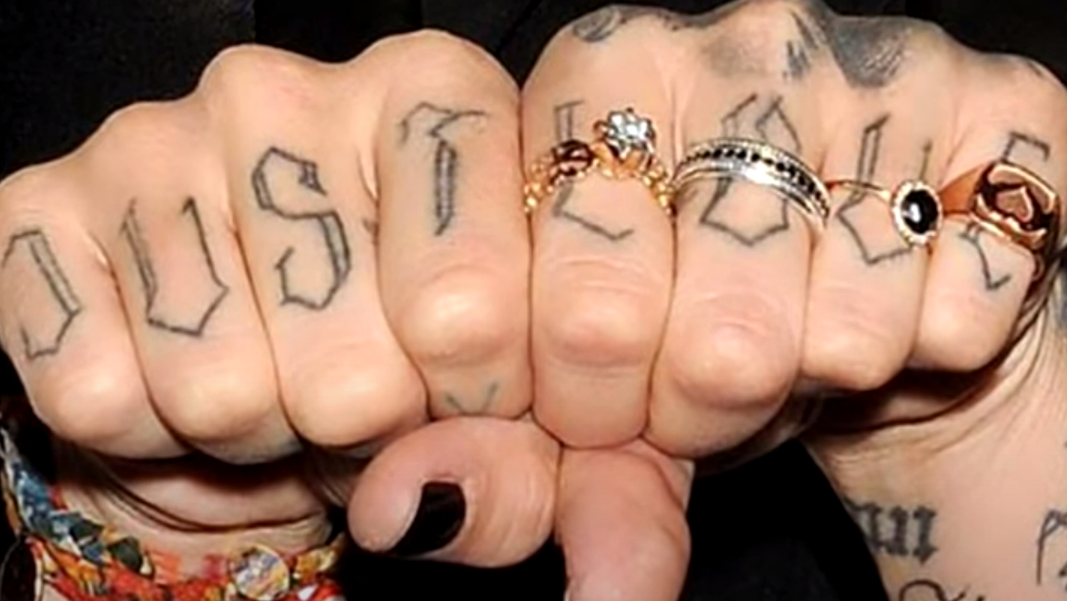Do you have tattoos? Are you an actor? Chances are, if you fall into both of those categories – and especially depending on the type of roles you’re looking for – there could be a bit of hesitation before jumping in. Tattoos can limit what roles actors are cast for or even disqualify some opportunities outright; so when considering adding ink to your skin, it’s important to evaluate how they’ll impact your career in acting. In this blog post, we take a look at our research into tattoos and their potential effects on aspiring actors – providing detailed analysis accompanied by practical advice!
What Makes Tattoos “Off-Limits” For Actors?
Many actors have tattoos, but that doesn’t mean they can show them on camera. Depending on the role and setting of the film or television show, a tattoo could be considered too distracting or inappropriate for the character. For example, an actor playing a convict wouldn’t be allowed to showcase any visible body art, as it would take away from the realism of the character.
Another reason why tattoos can be off-limits for actors is that they cannot promote any products or brands. Therefore, if an actor has a tattoo featuring branding, symbols, or logos of any kind (even those belonging to their own personal brand), they must find a way to hide them while on set.
Overall, having visible tattoos could be potentially distracting for viewers and take away from the story being told in film or television shows. This is why many production teams prefer not to work with actors who have tattoos that are too visible or elaborate. However, as long as the body art is subtle enough to not draw attention away from the story, actors are usually allowed to keep their tattoos. [1]
Are There Exceptions To The Rules?
Although there are rules in place about what kind of tattoos an actor can have, it’s important to keep in mind that exceptions may be made. For example, if an actor is going for a very specific role that requires a particular tattoo or look, then they may be exempt from having to cover up their ink during filming. Additionally, some directors may even allow actors with visible tattoos if the body art matches the character’s story and image.
Ultimately, it comes down to the production team’s discretion when determining if an actor can or cannot show off their tattoos on screen. However, as long as an actor follows the basic principles stated above (such as avoiding facial tattoos), they should be able to work without any issues. As long as the tattoo is appropriate for the role, it shouldn’t be a problem for an actor to show off their ink on screen!
What Type Of Acting Career Do You Want To Have?
If you’re an actor hoping to have tattoos, it’s important to take into account the type of acting career you want to have. Generally speaking, if you are pursuing a career in theater or stage acting, then having visible tattoos is less likely to be an issue since these performances usually involve costumes and makeup that can conceal visible body art. However, for television and film roles where actors play characters that do not typically have tattoos, having any visible tattoos may limit your casting opportunities.
Additionally, if you plan on doing commercial work or playing certain roles such as doctors or lawyers that may look down upon visible body art, it would be wise to consider keeping your tattoos covered up while auditioning for those types of parts.
Ultimately, the decision whether or not to have tattoos as an actor is a personal one and will depend on your individual career goals. While having visible tattoos may limit some opportunities in certain areas of acting, it doesn’t mean that you can’t still be successful in the profession. If you choose to display your body art proudly, there are many roles where visible tattoos can be embraced and even used to help make characters more believable. [2]
What Do Casting Directors Say About Actors With Tattoos?
Casting directors have varying opinions about actors with tattoos. Some casting directors are open to seeing actors with tattoos, while others may prefer not to see them. In general, the larger and more prominent the tattoo is, the less likely it is to be accepted by casting directors. Furthermore, some casting directors may require the actor to cover up any visible tattoos during auditions or performances.
At the end of the day, a casting director’s opinion on tattoos comes down to personal preference. As such, any actor considering getting a tattoo should think about how it may be perceived by those in the industry and make sure that they are comfortable with potential opinions before they get the ink. Moreover, actors with existing tattoos should research what types of roles they can or cannot audition for and plan accordingly. Overall, although tattoos may be acceptable depending on production requirements, actors need to have an awareness of their body art choices at all times.
With this knowledge in mind, actors can navigate the entertainment industry and decide whether having a tattoo is right for them. Ultimately, when it comes to portraying characters and making a living as an actor, visibility is key – and tattoos can sometimes be a hindrance to that goal. [3]
Can A Film Studio Be Sued Over An Actor’s Tattoo?
The answer is yes, in certain circumstances. For example, film studios may be liable for copyright infringement if they fail to obtain permission from the artist of a tattoo that appears on an actor’s body in a movie or television show. As such, it is important for production companies to secure a “tattoo release” before filming any scenes with actors sporting tattoos. This document should give the studio permission to use the design and should also include details about how the tattoo will be used (e.g., type of exposure). Additionally, if an actor’s tattoo contains text or images that are protected by trademarks or other intellectual property rights, then film studios could potentially face trademark infringement lawsuits too.
Ultimately, it is possible for film studios to be sued over an actor’s tattoo, so they must take precautions when using tattoos in films or television shows. Film studios should always strive to obtain permission from the artist of any tattoos used in a production and should never ask an actor to get a tattoo for the role. By taking these proactive steps, film studios can reduce their risk of being sued over an actor’s tattoos and ensure their productions are compliant with all applicable laws. [4]
Safe Tattoo Areas For Actors
Actors with tattoos should think carefully about where they place their body art. Many television and film roles involve wearing a costume, which can cover parts of the actor’s skin. In these cases, it is best for an actor to have their tattoo in an area that can be easily covered with clothing. Common safe spots for tattoos include arms, shoulders, backs, and calves. Having a tattoo on the face or neck can limit an actor’s ability to land certain roles as it may interfere with the character designs used by makeup and costuming departments. It is also important to note that some production companies do not allow actors to have visible tattoos at all when working on their projects.
In short, actors should take into consideration the types of roles they are likely to be taking and where on their body they should place any tattoos. Doing so can help them maximize their opportunities for landing jobs while also ensuring that they can still express themselves through body art.
How Can I Know If A Particular Role Will Allow Me To Have Visible Tattoos?
It’s important to consider the type of role you plan on auditioning for when deciding whether visible tattoos will be acceptable. Generally speaking, most acting jobs are open to actors with tattoos, however there may be some restrictions or caveats depending on the production. For example, if a role calls for a character from a particular time period where having visible tattoos would not be appropriate or socially accepted, it is likely that being tattooed will prevent you from getting the part even if the production team doesn’t mind them.
If you’re unsure about whether your tattoos will affect your ability to get a particular role, it’s best to contact the casting director or production team directly and ask what their policy is regarding visible body art. That way, you can be sure that you’re not wasting your time by auditioning for a role that won’t accept someone with tattoos. It’s also important to remember that some roles may only allow temporary tattoos or cover-ups, so it’s best to check before getting permanently inked for an acting job! [5]
What Are Some Of The Best Ways To Hide My Tattoos While On Set Or Acting?
If you are an actor who has tattoos and need to hide them for a role, there are several ways of doing so. One option is to use makeup or body paint to cover up the tattoo. Makeup can be applied in layers until the desired coverage is achieved. Specialty products such as Tattoo Camo or Dermablend can also be used for full coverage. Additionally, you could opt for a long sleeve shirt or trousers with a higher neckline or longer arms to cover your tattoos while on set.
You could also get creative with clothing and accessories by adding scarves, hats, gloves, jewelry, etc., which will help distract attention away from the tattoo. If all else fails, you can always consider using a prosthetic or body suit to cover the tattoo completely. With some creativity and resourcefulness, you can easily hide your tattoos while on set or acting.
By following these tips, actors who have tattoos can find ways to conceal them while on set or acting without having to worry about a distraction from their performance. With the right preparation and knowledge, actors can use their tattoos to their advantage without having to sacrifice any part of their craft.

Do Tattoos Make It Harder To Get Acting Jobs?
The short answer is: not necessarily. While it’s true that you may find some casting directors who are hesitant to hire actors with visible tattoos, there are a growing number of casting directors and producers who actually seek out actors with tattoos because they believe they have an edge over other applicants.
When deciding whether or not to get tattoos as an actor, it’s important to consider the types of roles you want to pursue. Are you looking for roles in films and television where your body art could be seen? If so, make sure they can be easily covered with makeup or clothing if needed. It’s also important to keep in mind the amount of time and money it will take to cover up your tattoos when necessary—this may not always be feasible for certain projects.
Ultimately, remember that the best way to ensure success in any field is by hard work and dedication—tattoos should never be a substitute for talent! With a good attitude and strong skills, you can overcome any potential prejudice based on body art. [6]
What About Piercings?
Piercings are a more recent body modification trend than tattoos, but they are still considered to be quite acceptable in the entertainment industry. While many actors opt against getting piercings for aesthetic reasons, there is nothing stopping an actor from having one or more piercings as long as it does not take away from their performance. Many actors have had some form of facial piercings in the past, although these can often be covered up with makeup during filming if necessary. Even though many actors prefer not to have anything beyond earrings on their face, others choose to sport nose rings and other types of jewelry.
There is no definitive answer as to whether actors should or should not have any kind of piercing, but it ultimately comes down to personal choice.
Thus, the decision to get a piercing should be made carefully and with consideration for how it might affect an actor’s career. It is important to consider the type of roles the actor may be looking for before getting a piercing as well as any character requirements that might exist in those roles. As long as an actor is aware of the potential consequences, they can make an informed decision about whether or not piercings are right for them.

What Tattoos You Should Avoid as an Actor
Though having tattoos can be an asset to an actor’s appearance, there are certain tattoos that should be avoided. Highly visible tattoos such as facial or neck tattoos can limit the characters you will be able to portray and might make it difficult for casting directors to take you seriously. In addition, some types of tattoos may draw attention away from a performance rather than adding to it.
Furthermore, actors should also consider how their tattoo designs will look over time because body art is permanent after all. If the design becomes outdated or faded due to age then this may also impact the type of roles they can get.
Therefore, it is important to think carefully before getting a tattoo and make sure that it will not interfere with your ability to pursue acting opportunities. [7]
FAQ
Should an actor have tattoos?
The answer to this question largely depends on the type of role an actor is seeking and the production company’s policies. Generally speaking, however, many casting directors view tattoos as a potential distraction and frown upon them if they are visible onscreen. Therefore, for most roles, it is recommended that actors do not have any visible body art or piercings. In some instances, however, tattoos may be considered acceptable depending on the context of the particular project. It is best to check with the casting director or production team to see if having a tattoo will affect your chances of being cast in a certain role. Additionally, it may be beneficial to consider covering up any tattoos while on set if requested by the production crew. Ultimately, each case should be judged on its own merits.
What if the role calls for a character with visible tattoos?
In some cases, certain roles may call for characters with visible body art and piercings. In these instances, an actor may need to consider getting a temporary tattoo or using makeup to cover up their real ink. Makeup can be used to create realistic looking tattoos that are more subtle than permanent versions and don’t require any long-term commitment. If you decide to go this route, it is important to make sure that your makeup looks natural so as not to distract from the scene. Additionally, if requested by the production team, actors should also be prepared to remove their temporary tattoos before leaving the set.
Should I get a visible tattoo if I want to be an actor?
If you are looking to break into the acting world, it is generally not recommended that you get any kind of visible body art or piercings. Not only may this affect your chances of being cast in certain roles, but it could also potentially limit your career opportunities in the long run. If you do decide to pursue a role that calls for visible tattoos or piercings, make sure to use makeup or temporary tattoos so as not to leave any lasting marks. Ultimately, it is always best to consult with a casting director before making any permanent changes regarding physical appearance.
How do actors cover up tattoos?
Actors have the option to cover their tattoos while on set. This can be done in a variety of ways, from using makeup and body paint to wearing clothes that completely or partially conceal the tattoo. Tattoo sleeves are also a popular accessory for actors who need to cover up tattoos. Tattoo sleeves are usually made from lycra material and are designed to fit over an arm, chest, leg or other area with a tattoo. These sleeves come in various shades and colors so actors can choose one that best matches their skin tone and effectively hides the tattoo underneath. Additionally, depending on the size of the tattoo, some actors may opt for temporary tattoos as a way to hide them during filming. Temporary tattoos come in a variety of shapes and sizes and are applied with a special adhesive. They generally last up to several days, making them an ideal option for those actors who need to cover their tattoos quickly and easily without any hassle.
Should I cover my tattoos for an audition?
The answer to this question depends on the individual actor and, more importantly, the production they are auditioning for. Some productions will not have an issue with visible tattoos and may even encourage them as a form of self-expression. However, other productions may prefer that tattoos are covered up in order for actors to appear more traditional or “clean-cut”. Ultimately, it is always best to check with the casting director or production team before attending your audition in order to know their policy on visible tattoos.
Additionally, it can also be helpful to do some research about any guidelines that can help you decide if covering up your tattoos would be beneficial or necessary for your particular audition. If you decide that you need to cover up your tattoos for an audition, there are products available specifically designed for this purpose. For example, you can use a product such as Tattoo Concealer to cover up any visible tattoos and ensure that you look professional during the audition process.
Are tattoos OK at work?
The answer to this question depends on the workplace. Some employers require employees to cover up tattoos while at work, while others may have a more relaxed policy. When it comes to actors, most talent agencies and production companies prefer that actors do not have visible tattoos – unless they are essential for the role or part of an actor’s established character look. In some cases, production companies may be willing to accept covered-up tattoos, such as with clothing or makeup. Ultimately, it is best to check with your agent or talent agency about their specific policies before getting any tattoos if you plan to pursue acting as a career.
Can actors have piercings?
Yes, actors can have piercings. Having a piercing is less intrusive than having a tattoo, and it’s actually quite common for actors to sport body jewelry in their roles. However, if the role requires an actor to portray someone without any piercings, then they may be asked to remove or cover up their piercings. Depending on the production company and its rules, some may even ask that the actor not get any new piercings while filming. Ultimately, if an actor has piercings and it doesn’t interfere with their role or make them look out-of-place with the other characters, then they are typically allowed to keep them.
Useful Video: Can Actors Have Tattoos?
Conclusion
In conclusion, whether an actor can have tattoos or not depends on the preference of the individual production. In some cases, having a tattoo may be seen as a benefit since it can give an actor’s character more depth or complexity. However, other productions may require actors to cover up any visible tattoos and therefore prohibit them from having any in the first place. Ultimately, when deciding whether or not to get a tattoo as an actor, it is important to consider both the potential benefits and drawbacks that come with body art in order to make an informed decision.
References:
- https://www.backstage.com/magazine/article/can-actors-get-tattoos-guide-74982/
- https://www.backstage.com/magazine/article/backstage-experts-answer-working-actors-get-tattoos-6835/
- https://www.tattoorules.com/other-professions/actors-tattoos/
- https://www.lauramacmethod.com/blog/does-tattoos-affect-an-actors-career
- https://workonfilm.com/can-actors-have-tattoos-and-piercings/
- https://encast.eu/help/can-an-actor-have-a-tattoo/
- https://tattooaim.com/can-actors-have-tattoos/
















Leave a Review